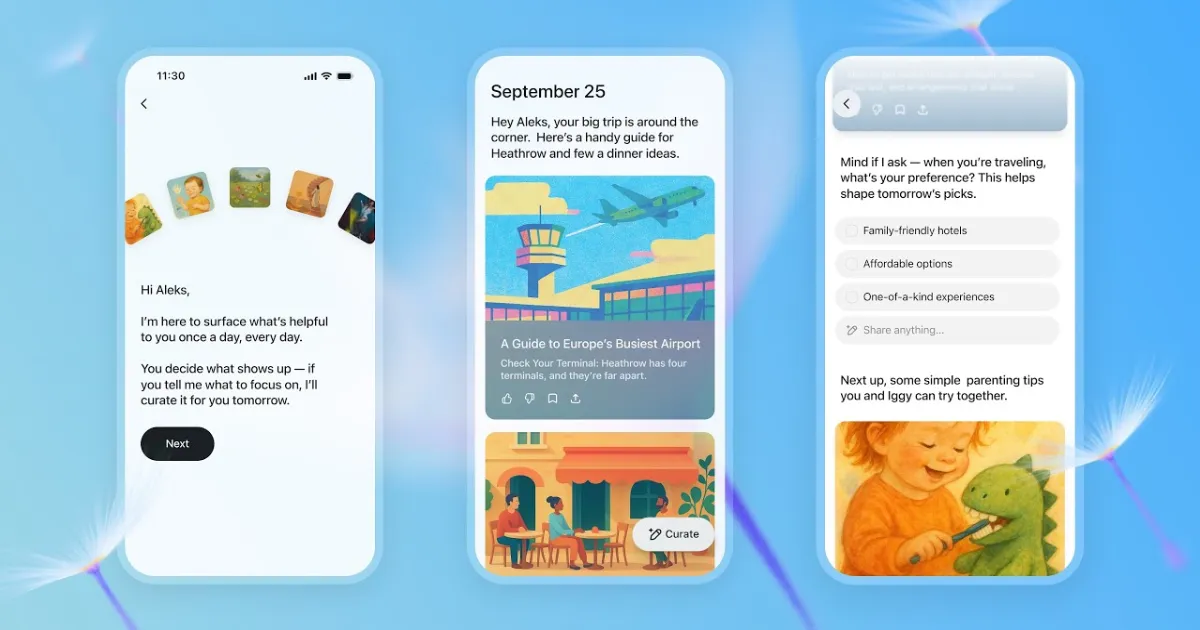OpenAI launches ChatGPT Pulse to deliver morning briefs

OpenAI is rolling out a new feature for ChatGPT called Pulse, designed to generate personalized daily reports for users while they sleep. The feature, which launches Thursday, provides five to ten tailored briefs each morning, aiming to make ChatGPT part of users’ daily routines — much like checking social media or a news app.
Pulse reflects a broader shift in OpenAI’s consumer strategy: moving from a reactive chatbot to a more proactive personal assistant. Instead of waiting for users to ask questions, ChatGPT can now prepare context-specific updates overnight.
“We’re building AI that lets us take the level of support that only the wealthiest have been able to afford and make it available to everyone over time,” said Fidji Simo, OpenAI’s new CEO of Applications. “ChatGPT Pulse is the first step in that direction – starting with Pro users today, but with the goal of rolling out this intelligence to all.”
Limited to Pro Plan for Now
Initially, Pulse will be exclusive to subscribers of OpenAI’s $200-per-month Pro plan, appearing as a new tab inside the ChatGPT app. While the company plans to extend access to Plus and eventually all users, OpenAI first needs to make the product more computationally efficient. CEO Sam Altman has recently noted that server constraints are limiting the availability of resource-heavy features.
What Pulse Can Do
Each Pulse report is presented as a card featuring AI-generated text and images. Users can click through for more detail, query ChatGPT about the contents, or request new reports. Examples shown in demos include:
- A roundup of news about soccer club Arsenal
- Halloween costume ideas for families
- A toddler-friendly travel itinerary for Sedona, Arizona
Pulse can also connect with Google Calendar and Gmail through ChatGPT’s Connectors, enabling it to surface key emails or generate a daily agenda. If memory is enabled, it can recall personal context — such as favorite activities or dietary preferences — to personalize recommendations further.
One deliberate design choice sets Pulse apart from social media feeds: after producing a handful of briefs, it stops, displaying the message “Great, that’s it for today.” OpenAI says this is meant to curb endless scrolling.
Potential Impact and Competition
Pulse could compete with existing news aggregators, newsletters, and journalism apps. However, OpenAI says it cites its sources with links, similar to ChatGPT’s Search feature, and isn’t intended to replace traditional news products.
The feature does raise questions about computational costs. OpenAI’s product lead Adam Fry noted that tasks vary widely in efficiency, with some requiring intensive web searches and synthesis.
Longer term, OpenAI envisions Pulse evolving into a more agentic assistant capable of actions such as booking restaurant reservations or drafting emails for user approval. Such capabilities, however, may be years away and will depend on advances in trust and reliability.
With Pulse, OpenAI is betting that users will want their AI assistant to not just answer questions — but anticipate their needs.





